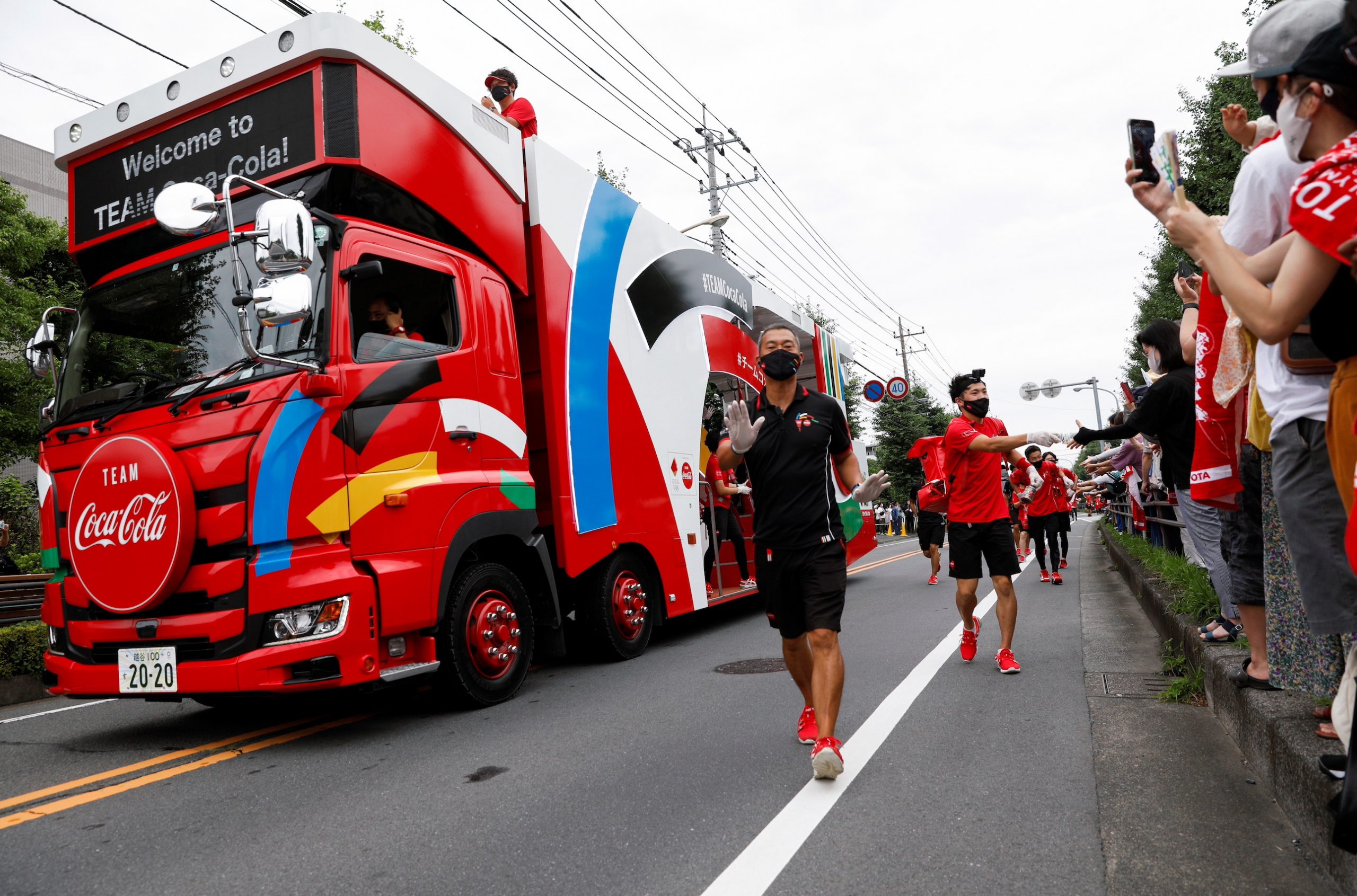Report suggests that only VIP spectators will be allowed to watch prestigious opening ceremony amid concern large gatherings will hasten resurgence of Covid
(AF) Call them the incredible shrinking Games.
With no overseas spectators allowed to watch the postponed 2020 Olympics in Tokyo, only half the seats were to be sold to locals amid concern that full stadiums would intensify an already speedy resurgence of Covid infections.
Now the opening ceremony – the one event that was expected to draw a crowd – may be open only to participants and VIP spectators, according to a media report.
Plans for the opening ceremony remain under wraps but the Asahi newspaper, ahead of talks with the International Olympic Committee and other organisers, reported that the government would slash the number of VIPs, such as sponsors’ guests and diplomats, at the opening ceremony from an initial estimate of about 10,000.
Once promoted as an extravaganza to showcase Japan to the world, the Games appear in danger of taking place in largely empty venues.
The Games, already delayed a year, are set to open on July 23 despite concern that an influx of tens of thousands of people from around the world could trigger new waves of infections.
Evening curfew
During the Games, events at large venues and those after 9 pm would also be held without spectators, the paper said, citing multiple unidentified government sources.
It’s the latest blow to the Games, which were almost cancelled last year the pandemic spread across the globe. Estimates put the likely losses from absent spectators and infrastructure development at $23 billion.
With the public nervous about new clusters of infections, medical experts have said no spectators would be the least risky option.
The question of spectators is due to be decided at five-way talks also expected on Thursday that will include the Tokyo governor and IOC President Thomas Bach, who arrives in Japan that day.
The government looks likely to decide on Thursday to extend a state of quasi-emergency in Tokyo and three nearby prefectures beyond an original end-date of July 11, government sources have said.
Kyodo News reported that the extension would likely last a month, meaning the curbs will be in place throughout the Olympics, which close with a ceremony on Aug. 8.
Torch relay
When the Games were postponed last year, Japanese officials said they hoped they would be held in 2021 as a symbol of “victory” by humankind over the virus.
With that celebration on hold as countries around the world grapple with new outbreaks, they now say the Games will help bring together a divided world.
In another blow, the Olympic torch relay, set to reach Tokyo on Friday and parade through the city until the opening ceremony, will be moved off public roads.
Instead, torch-lighting ceremonies without spectators will be held, the Yomiuri newspaper reported. Organisers also said they would ask the public not to gather to watch the marathon and walking races being held on streets.
When Japan was awarded the Games in 2013, they were expected to be celebration of recovery from a deadly earthquake and tsunami nuclear accident in 2011.
In 2015, then-prime minister Shinzo Abe promised visitors would be able to use self-driving cars to run around Tokyo and a start-up backed by Toyota Motor Corp said in 2017 it aimed to light the Olympic flame with its flying car.
All-out ban
The coronavirus has brought everyone down to earth.
Asked about spectators, top government spokesman Katsunobu Kato told a news conference that Prime Minister Yoshihide Suga has said holding the Games without spectators was a possibility.
Suga was keen to have fans in the stadiums, the Asahi said, but added some ruling party members wanted a ban, especially after the ruling coalition failed to win a majority in an election for the Tokyo’s assembly on Sunday, partly due to dissatisfaction with the government’s COVID-19 response.
That poll is seen as a bellwether for a general election later this year.
Japan has not had the explosive COVID-19 outbreaks seen elsewhere but has seen more than 800,000 cases and more than 14,800 deaths. A slow rollout has meant only a quarter of its population has had at least one vaccination.
-
Reporting by Reuters
























